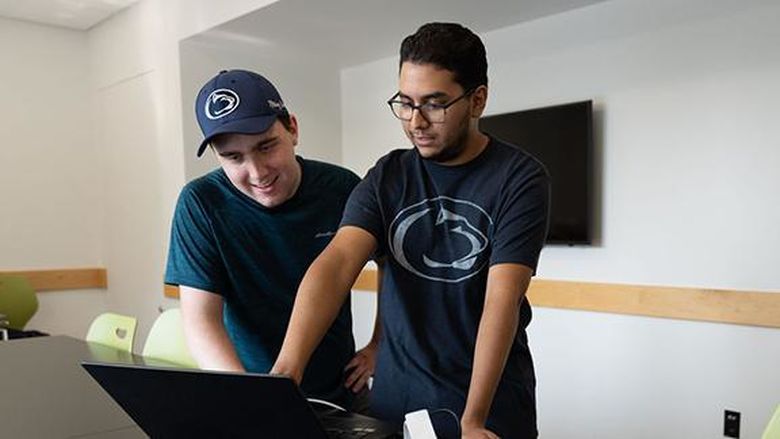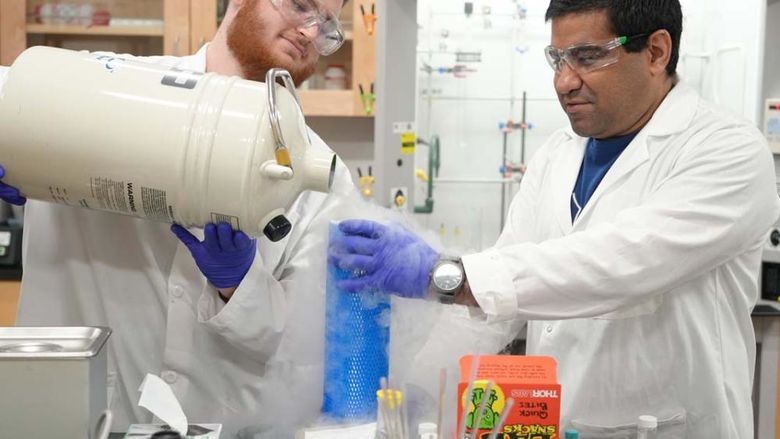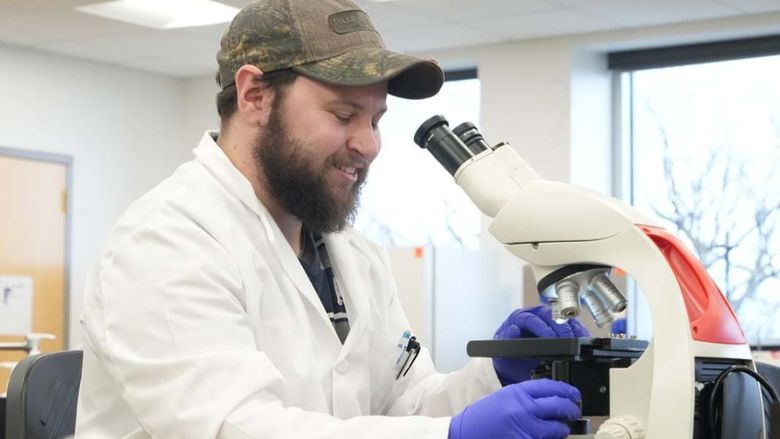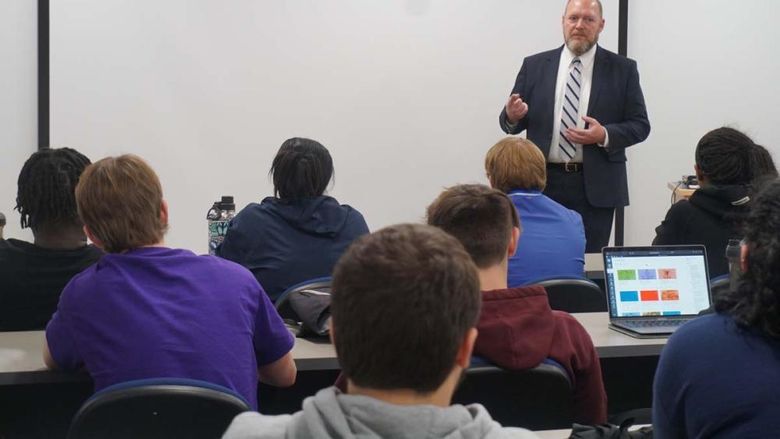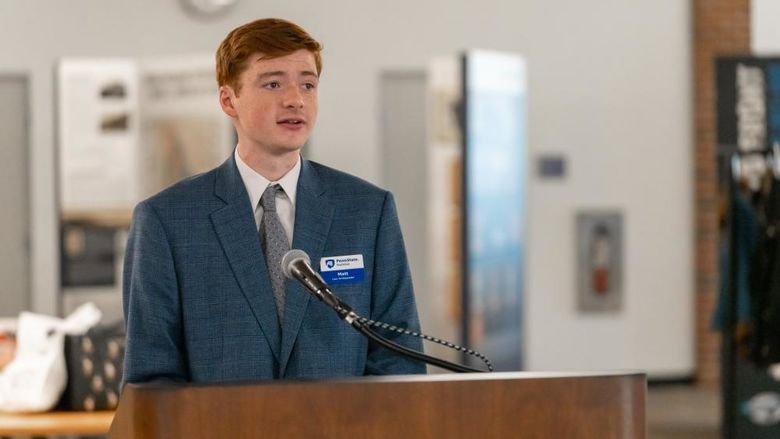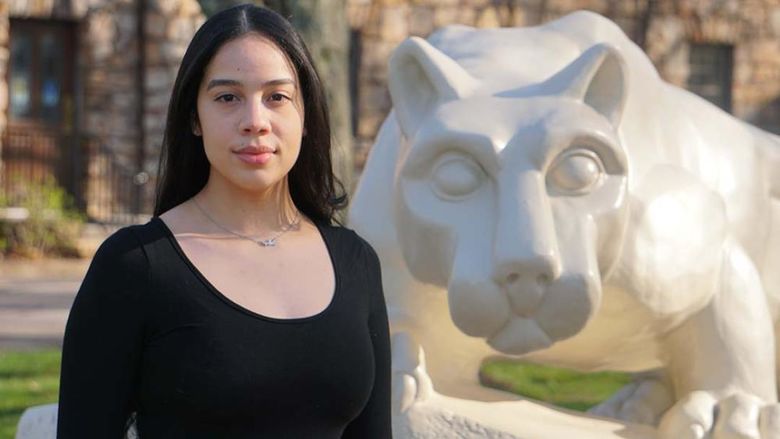
Penn State Hazleton Rehabilitation and Human Services faculty members Lorie Kramer and Garrett Huck secured a grant from Penn State's Schreyer Institute of Teaching Excellence that will support a day-long field trip for students in the program.
HAZLETON, Pa. — Penn State Hazleton Rehabilitation and Human Services students will swap their classrooms for the crumbling cellblocks of a notorious former prison and a state hospital that played a key role in the disability rights movement thanks to an award secured by the program’s faculty members.
The award, a $3,100 Teaching Transformation and Innovation Grant from Penn State's Schreyer Institute for Teaching Excellence, will support a daylong field trip to Eastern State Penitentiary in Philadelphia and Pennhurst Museum in Spring City on Oct. 18, bringing a first-person perspective to much of the history students are taught in the Rehabilitation and Human Services program.
The four-year degree program helps prepare students for entry-level positions in a variety of human service settings, particularly ones that help people with physical, emotional, or mental disabilities.
Graduates typically work in settings that include rehabilitation centers, drug and alcohol programs, senior citizens centers, community mental health programs, hospitals, and corrections systems, making the treatment of individuals who are cared for in those facilities extremely relevant course material, said Lorie Kramer, associate teaching professor of Rehabilitation and Human Services and coordinator of the program.
It’s one thing to tell students in the classroom about the history of how prisoners and people with disabilities were treated, but it’s an entirely different learning experience to see, show, touch, walk through, and witness that history in person.—Lorie Kramer , Penn State Hazleton Associate Teaching Professor
“It’s one thing to tell students in the classroom about the history of how prisoners and people with disabilities were treated, but it’s an entirely different learning experience to see, show, touch, walk through, and witness that history in person,” she said.
Associate Professor of Rehabilitation and Human Services Garrett Huck, who developed the grant proposal with Kramer, said each stop on the field trip offers its own important insight into the Rehabilitation and Human Services field.
The tour of Eastern State Penitentiary will help students understand the legacy of the American criminal justice system and how society was impacted by mass incarcerations, while the visit to Pennhurst Museum will show the major role the facility played in the disability rights movement due to its mistreatment of individuals with developmental disabilities, he explained.
Moreover, Huck said, the visits will teach students the value of empathy, a quality that is critical in the field.
“Being able to put yourself in your client’s shoes is essential to working with people effectively,” he said. “It’s our hope that students come away from this experience motivated to be advocates for equality and change in society, and that they will not only find this experience interesting, but also inspiring, as they enter their future careers helping others in need.”
Penn State Hazleton Chancellor Elizabeth J. Wright said providing students with the tools to succeed in the classroom and in their careers is an integral part of the campus’ mission.
“We want our students to get the most out of their education at Penn State Hazleton, inside and outside of the classroom,” Wright said. “Unique opportunities like the one these students are about to have are consistent with the dedicated approach taken by our faculty and staff to ensure an enriching experience.”
The learning experience continues even after the field trip, Kramer said. After returning, students will reflect on what they learned by participating in a gallery walk. The activity has students walk throughout the classroom, stopping at poster boards to discuss their takeaways and share their ideas.
The overall experience is an example of how campus faculty work to advance teaching and learning by developing experiential learning opportunities for students, Interim Director of Academic Affairs Albert Lozano-Nieto said.
“This trip is an experience that students are sure to remember for a long time,” Lozano-Nieto said. “We are excited for them, and grateful to Lorie and Garrett for their hard work in securing a grant that will provide such a valuable perspective of the concepts taught in the classroom.”
Kramer and Huck said the opportunity wouldn’t be possible without the support of campus administrators and the Schreyer Institute for Teaching Excellence.
“It’s just another example of how we are encouraged to do interesting and innovative things,” Huck said. “The support gets us excited to do what we need to do to support students.”
